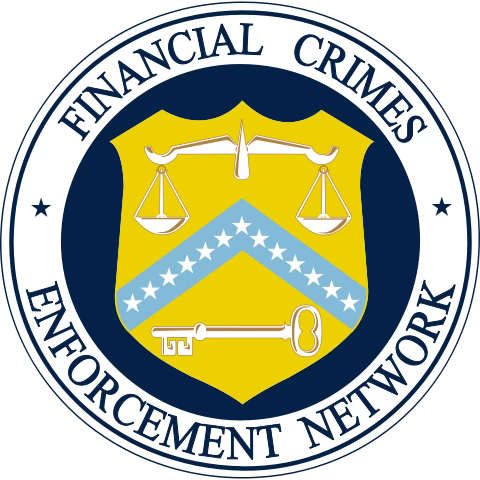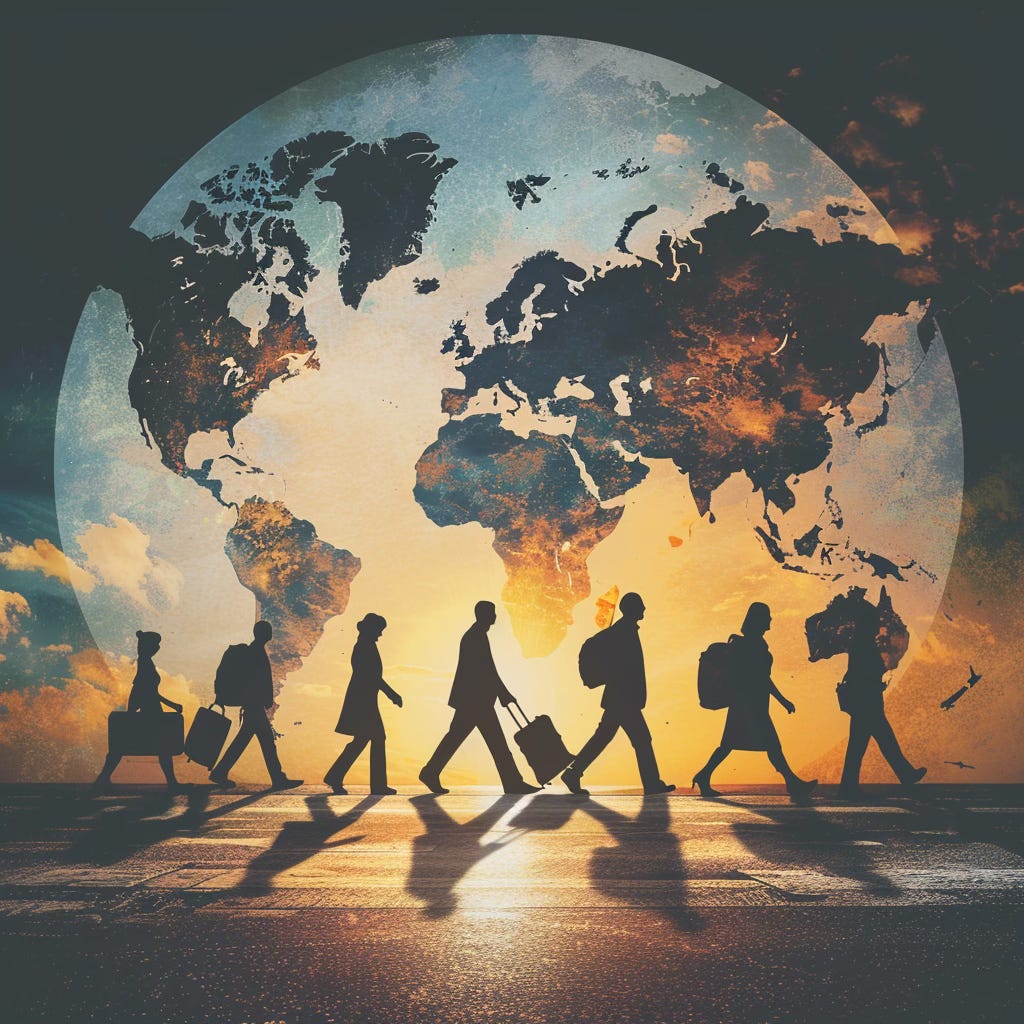How Modern Tech Empowers Governments
And Transforms Your Personal Data into a Hacker's Paradise
Note : After the 14-part series in which we looked at how nation-states are being disrupted by the Internet and globalization, and a 4-part series on why now is the worst time for them, I have concluded that there are two main ways for governments to respond to these disruptions:
Increasingly control what their residents do, via permanent digital surveillance and the use of AI and machine learning (China's way)
Accept that their role will diminish and treat their residents more like customers
In this new series, corresponding to chapter 4 of my forthcoming book, we analyze the (very) slippery slope towards generalized surveillance to which many countries, including the most democratic, are committing themselves.
Here are the 11 articles of the series :
A century ago, to access all a bank's customer data, you had to go to each branch, physically seize all the paper archives, and then consult them, manually and laboriously.
Today, all the info is in a database that can be stolen remotely by a sufficiently skilled hacker from the comfort of his or her own home, and the data can then be run through filters and AI analysis tools to bring out the most interesting parts.
This is just one example: everyone can see how much easier it is to access documents and transport them from one place to another today than in the pre-digital era.
The million documents Snowden stole probably fit into a few USB sticks, whereas it would have taken truckloads to steal them a few decades ago.
This has disruptive effects for nation-states, making it easier for whistle-blowers to blow the whistle... but it also gives them new powers.
Customs powers of seizure
"There are few places in the world where an individual is as vulnerable as at the border of a foreign country."
Privacy International, privacy protection charity
In many democratic countries, it is not possible for the police to search your home without a warrant from a judge, and this is considered a basic measure of privacy protection and checks and balances.
In many countries, however, customs officials can search anything you bring with you when crossing a border, without the authorization of a judge.
This wasn't a problem in the pre-digital era, because the amount of information you could carry was necessarily small.
But today this gives customs the right to access :
All the information contained in your smartphone, i.e. all the messages you've exchanged with your colleagues, friends and relatives (including any lovers), all your photos (including intimate ones), all your bank details stored there, etc.
The complete data on your laptop if you're carrying one
And some customs, like U.S. Customs, even have the right to access the Internet from your devices, to check your social media use.
This leads to clear abuse of power.
For example, in August 2019, Ismail Ajjawi, a 17-year-old Palestinian refugee living in Beirut, arrived in Boston because he had been admitted to Harvard.
He was questioned for 8 hours by US Customs, his smartphone and computer were searched, and his social media accounts were accessed from these devices.
Then a customs officer asked him about posts made by one of his friends on one of these social media sites, which were apparently critical of US policy. Ismail insisted that he had nothing to do with it, and that his friend published what he wanted, but nothing helped: he was refused entry to the US, his visa was cancelled, and he was sent back to Beirut1.
Fortunately, his contacts at Harvard alerted the press and made such a fuss about the affair that the American embassy in Beirut reactivated his visa, and he was finally able to return 10 days later, just in time to start his classes2 .
Ismail Ajjawi was lucky - many other people couldn't say the same.
This example shows that customs today have inordinate power to access the most intimate details of your life, simply because the constitutions and laws of democratic countries have not kept pace with the evolution of technology - or rather, have not kept pace in the right direction.
Does this kind of practice stop criminals?
And, as usual, this kind of practice doesn't stop the real criminals: they are well aware of the risks they take when crossing borders, and to avoid any problems, they can simply upload the files they need to a service like Dropbox (after encrypting them) or Sync (Dropbox's equivalent, but end-to-end encrypted), empty their devices of all sensitive data, then upload the files again once they've crossed the border.

The clever ones can even easily use virtual private servers, or VPSs, which they can access via a connection from anywhere in the world, so they never carry a single compromising document with them.
But these considerations in no way stop customs from carrying out this type of search.
Because, once again, modern democratic governments are increasingly tempted to use digital tools as a means of mass surveillance of their populations.
So when a law allows an administration to carry out much more extensive controls than before, simply because the law hasn't changed to keep up with technology, as is the case here, states will choose, a little too often, not to change that law to take advantage of the fact that it was designed in a pre-digital era.
The same is true of the Constitution.
Papers and leaks
Another advantage that the nation-states have gained with digital technology is that it is now increasingly risky to commit tax fraud the "old-fashioned" way, by hiding money in a bank account abroad: not only is information now automatically exchanged between over a hundred countries (I'll come back to this in later articles), but bank or consulting firm employees can steal internal documents and communicate them to the world much more easily than before.
And, of course, hackers can steal these documents from the warmth of their homes on the other side of the world.
Let's take a look at the major "leaks" and "papers" that have taken place in recent years, and how they have helped nation-states:
Lux Leaks
In 2010, a PricewaterhouseCoopers (PwC) employee stole thousands of documents revealing how 340 multinational companies had secured secret tax deals with the Luxembourg government to reduce their tax bills. The ICIJ analyzed these documents and published them in 2014, with the help of numerous newspapers3 .
Here, all the arrangements were legal, in the sense that they were official (but not public) agreements between companies and the Luxembourg government.
However, depending on the circumstances, overly-aggressive tax incentives can be considered as government aid, which contravenes certain rules of the European single market. Investigations were launched by the EU's Directorate-General for Competition into certain schemes, but in the end few were condemned.
Ultimately, in 2015, the EU adopted a directive requiring member states to automatically exchange information on their cross-border tax rulings, including the "tax rulings" that were at the heart of the LuxLeaks, with the aim of increasing transparency and enabling other countries' tax authorities to challenge these rulings.
Offshore Leaks
In 2013, a leak of 2.5 million documents concerning offshore companies and individuals involved in tax optimization, and sometimes evasion, obtained by the International Consortium of Investigative Journalists4 (ICIJ) from two companies specializing in this type of set-up. It was not revealed whether the documents came from employees or hacks.
Most of the schemes revealed were legal, but the documents clearly showed the extent of international tax optimization, prompting governments to seek solutions to make such schemes more difficult.
Swiss Leaks
In 2015, the ICIJ, again, published documents from HSBC's Swiss private banking subsidiary stolen in 2008 by an employee, which showed how the bank had helped around 100,000 customers hide billions of euros in assets between November 2006 and March 2007 to evade taxes5 .
Many of our customers were involved in tax evasion, although it's impossible to know exactly how many of those who complied with the law did so, and several were convicted.
Panama Papers
In 2016, an anonymous source, probably a hacker, leaked 11.5 million documents from Panamanian law firm Mossack Fonseca, revealing how wealthy individuals and companies were using offshore companies to evade taxes and launder money.
Many of the firm's clients were involved in tax fraud. 5 years after the data was published, $1.36 billion in taxes and fines had been recovered by tax authorities in 24 countries6 .
Paradise Papers
In 2017, an anonymous source, probably a hacker too, shared with newspapers 13.5 million documents stolen from offshore law firm Appleby, confidential company registers from nineteen tax havens, and a Singaporean firm, exposing the offshore activities of politicians, celebrities and multinationals7 .
Most of Appleby's clients practiced legal tax optimization.
FinCEN Files
In 2020, BuzzFeed News obtained stolen documents from the US Treasury's Financial Crimes Enforcement Network (FinCEN), which revealed how some of the world's largest banks had facilitated money laundering and other illicit activities.
This is the 1st leak committed by an official of the list, in this case the American Natalie Edwards, who was sentenced to 6 months in prison and three years of probation for these facts8 .
Pandora Papers
A leak of 11.9 million documents in 2021 from 14 offshore service providers revealing information on offshore companies, trusts and bank accounts held by politicians, celebrities and billionaires worldwide.
And many more
These documents shed light on tax optimization, tax evasion and other opaque financial activities, some legal, some not.
There have been many other smaller leaks, such as the Malta Files, the CumEx Files, the Dubai Papers and the Bahamas Leaks, which I'll spare you.
Evidence of terrorist financing?
It should be noted that, despite the tens of millions of documents revealed by these leaks, it has not been possible to demonstrate any terrorist financing operations via any of the structures revealed.
The many articles about these leaks often talk about the possibility of tax havens and shell companies being used to finance terrorism, and sometimes even that this is often the case... but without giving any concrete examples.
When there are examples given, it's about cases that haven't been found through leaks, or about cases that aren't terrorism.
For example, an article bluntly entitled "The Panama Papers show how easy it is to finance terrorism using US shell companies"9 , says that there are strangely no Americans on the Panama Papers list, and proposes as an explanation... that it must be because it's easy to set up shell companies in the US!
He gives as evidence the example of Russian arms dealer Viktor Bout, who was arrested following a classic undercover operation by the police, and the fact that he used a dozen shell companies... all registered in the USA (!), which were never leaked and are not connected to the Panama Papers, contrary to what the article suggests.
So to sum up, the article literally claims that the Panama Papers prove that it's easy to finance terrorism with US shell companies, when 1) none of them appear in the papers, and 2) the example shown isn't linked to terrorism, but to arms trafficking.
You can see many, many examples of faulty reasoning like this, and when you investigate the background you see that the arguments are not based on anything solid10 .
The anti-terrorism argument for setting up a global financial supervision system has a nice ring to it. Clearly, it's just an excuse that isn't supported by the facts (yet another one, to add to those we saw earlier).
And tax evasion ?
The argument of combating tax fraud is valid and amply demonstrated.
Ultimately, the most important point is that the ease with which digital technology can steal and distribute documents can both diminish the influence and prestige of nation-states (when they divulge inglorious secrets, as with Snowden's revelations), and also help them, when they reveal tax frauds that enable them to recover billions, or legal but considered abusive set-ups, which create the political momentum to change things.
I'd like to make it clear that I'm absolutely against tax evasion, and that I think it's perfectly normal, when you live in a country, to abide by its laws.
These leaks are already a danger in themselves for any tax evader, who can from one day to the next see his name in the press - and in the tax authorities' e-mail inbox - in the event of data theft or hacking, but they have also prompted the introduction of automatic information exchange programs, which we'll come back in later articles.
These two facts clearly put an end to old fashioned tax fraud, which consisted in opening a numbered account in Switzerland to stash away the money from tax evasion.
And so much the better.
And it also increases the power of states, which don't hesitate to use stolen documents, as has been the case in the majority of these cases.
Unexpected side effects?
Of course, this in no way prevents the disruption created by honest people and companies taking advantage of the freedom afforded by the Internet to freely choose their jurisdiction, and may in fact exacerbate it: of all those tax evaders, how many stayed in their own country because they felt they were paying a "fair" price for the services they obtained through their illegal schemes?
How many people, now that they can no longer commit fraud, will instead move abroad to, among other things, legally reduce their taxes?
We have to realize that, from a purely financial point of view, it's better for a State to have a taxpayer who evades part of the tax he owes, while still paying part of his taxes, and who stays in his country and contributes to the economy, than an honest taxpayer who moves away.
The state benefits from the taxpayer's presence on its territory even if he cheats, whereas a taxpayer who moves away is a total dead loss.
It is therefore possible that by becoming too intransigent and efficient in catching fraudsters, nation-states are exacerbating the disruption they are experiencing from the Internet and globalization.
Because paying a fair price for the service you get is a fundamental and universal need, so forcing people and companies to pay more than they think is fair for services rendered by states will inevitably create the same end result as the war on drugs: if you don't reduce demand, someone will always go out of their way to give you what you want, and demanders won't hesitate to take actions increasingly outside their comfort zone to get what they want.
So, despite all the money spent on the war on drugs (estimated at over $1,000 billion in the USA alone between 1971 and 201011 ), it's still easy to get a fix in every major Western city, because, as consumer demand remains, as soon as one dealer is arrested, another is ready to take his place.
If nation-states succeed in reducing tax evasion, they will just encourage people to reduce their taxes by other means, including exile, as long as people feel they are paying too much for what they receive.
Those who are truly blocked and feel they are paying too much will be even more dissatisfied with nation-states, at a time when their services will be diminishing in quantity and quality.
Disgruntled people revolt more easily, and nation-states may well discover over time that tax evasion (practiced by all levels of society, not just the rich, with cash and moonlighting) acted as a safety valve.
But as we see with the war on drugs and many other examples in history, governments can be in denial for a long, long time in these kinds of situations.
Coming soon
In the next article, we'll look at the automatic exchange of information that has been introduced to combat tax fraud, and whether or not it is effective.
Stay tuned ! In the meantime, feel free to follow Disruptive Horizons on Twitter, and join the tribe of Intelligent Rebels by subscribing to the newsletter :
Other articles in the series
"Harvard-bound Ismail Ajjawi an inspiration to fellow UNRWA students", United Nations Relief and Works Agency for Palestine Refugees in the Near East, 2019
"He got into Harvard. And now he finally got into the United States", Los Angeles Time
"Evasion fiscale : tout sur les secrets du Luxembourg", Anne Michel, Le Monde, 2014
"Secret Files Expose Offshore's Global Impact", ICIJ, 2013
"« SwissLeaks » : révélations sur un système international de fraude fiscale", Fabrice Lhomme, Le Monde, 2015
"Panama Papers revenue recovery reaches $1.36 billion as investigations continue", Sean McGoey, ICIJ, 2021
"Paradise Papers", Laura Green, Investopedia, 2021
"Panama Papers show how easy it is to finance terror using U.S. shell companies," Laura Hood, The Conversation, 2016
Another example among many: Tom Cardamone, director of the American association Global Financial Integrity, testified before the US Senate Committee on Foreign Affairs - "Ivory and Insecurity: The Global Implications of Poaching in Africa" 2012 - saying "[FVCs] are frequently used not only by wildlife traffickers, but [also by] U.S. and foreign terrorists, drug traffickers, arms dealers, corrupt foreign officials, tax evaders, rogue states and other criminals, to easily launder their money. ". In support of this, he gives the document "Anonymous U.S. "Shell" Corporations", created by the association he heads, which gives exactly 2 (!) examples: a building in Manhattan 40% owned by Iranians linked to an Iranian national bank, and an American entrepreneur who used his company to take out a loan with an American bank, which he used to buy an apartment in the United Arab Emirates, which he later sold, to give the $17,000 (!) profit to Al Qaeda. As further evidence, the document cites two US officials who merely make a statement without giving any proof or example. What we see here is genuine intellectual dishonesty, which is unfortunately something we see on a regular basis, as is the laziness of journalists and others who write on the subject to really check their sources.
"AP IMPACT: US drug war has met none of its goals", Martha Mendoza, AFP, 2010














Such a good series. You’ve given me a lot to think about! I still feel ambivalent about surveillance, and that if it were done more effectively it would mostly be a good thing (in the hands of good government). Ismail’s case is unfortunate, but I think the problem there wasn’t the surveillance, but that customs were judging his character on the basis of the behavior of someone he is connected to on social media. That has nothing to do with him!
As for tax evasion and the banks, make all that data public! (And for that matter all of our salaries too!) I think that would go a long way toward a better working system!